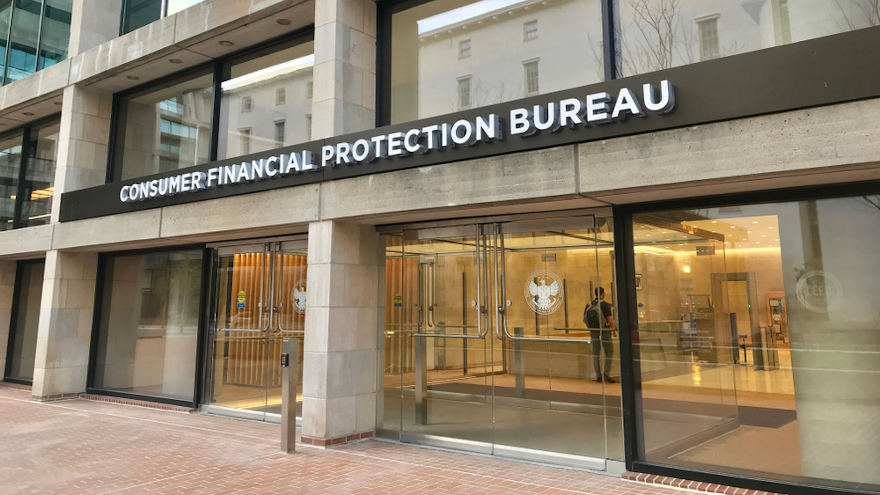The Department of Justice made a pair of announcements last week, with one involving Santander Consumer USA and the Servicemembers Civil Relief Act (SCRA).
According to a news release, the finance company’s Chrysler Capital division has agreed to pay more than $134,000 to settle a federal lawsuit alleging that the company denied early vehicle lease terminations to servicemembers who qualified for them under SCRA.
The Justice Department previously settled an SCRA lawsuit against Santander in 2015 for repossessing the vehicles of 1,112 servicemembers without a court order.
Officials reiterated that the SCRA permits servicemembers to terminate their vehicle leases early without penalty after entering military service or receiving qualifying military orders for a permanent change of station or to deploy to another location.
This settlement, which must be approved by the U.S. District Court for the Northern District of Texas, resolves a lawsuit filed in September by the Department of Justice. The lawsuit alleges that Santander unlawfully denied early vehicle lease terminations to 10 servicemembers.
Under the proposed settlement, Santander must pay $94,282.62 in compensation to the 10 aggrieved servicemembers and a $40,000 civil penalty to the U.S. Treasury.
The Justice Department recapped that its investigation, which began in 2019, stemmed from a complaint submitted by U.S. Army Captain Eric McDowell.
Officials said McDowell entered into a three-year lease in October 2017 for a Jeep Grand Cherokee, but he learned in May 2019 that he was going to be deployed to Afghanistan. In August 2019, officials said McDowell returned the vehicle to Santander and tried to terminate the lease, but the company denied his termination request.
The Justice Department said it was not until February 2020, after the United States had opened its investigation and six months after McDowell returned his vehicle to the dealership, that Santander finally approved the lease termination, voided early termination charges and refunded the lease amounts that had been paid in advance.
“Captain McDowell faced significant stress during his deployment to Afghanistan as a result of this six-month delay,” DOJ officials said in their news release. “The department’s investigation uncovered nine additional servicemembers whose SCRA rights it alleges Santander violated.”
As part of the agreement, officials said Santander has also updated its SCRA procedures and training.
“The civil rights of servicemembers who sacrifice so much for our country must be respected,” said assistant attorney general Kristen Clarke of the Justice Department’s Civil Rights Division. “We are committed to ensuring that those serving in our nation’s military receive the full range of benefits and protections that they are entitled to under the Servicemembers Civil Relief Act.”
Acting U.S. Attorney Prerak Shah for the Northern District of Texas added, “Given all our veterans put on the line when they deploy or change station, the last thing they should have to worry about is their car lease.
“The Servicemembers Civil Relief Act is designed to ease the financial burdens associated with active duty military service. We are determined to uphold this important law,” Shah went on to say.
3 plead guilty to conspiracy to defraud financial institutions & other credit issuers
In another development, Justice Department officials in Raleigh, N.C., said North Carolina residents Shawn Franklin, Anthony Maryland and Sabrina Wiggins Branch pleaded guilty last week to defrauding financial institutions and other lenders by using synthetic identities to obtain credit cards and consumer loans with no intention of payment.
Officials said their scheme included the purchase of two vehicles.
According to court documents and the government’s factual representations in open court, Franklin began using synthetic identities in 2012. By coupling his own name and date of birth with a nine-digit number that looked like a Social Security Number, Franklin created a new credit profile, otherwise known as a Credit Privacy Number (CPN).
“Individuals, like Franklin, with poor credit scores built fresh credit histories by adding a CPN as an authorized user to credit accounts belonging to other individuals with good credit scores,” the Justice Department said in another news release.
“These ‘trade lines’ enhanced the CPN’s creditworthiness, scamming lenders and credit card issuers into believing the CPN applicants have the ability and intent to pay-off indebtedness. Individuals using CPNs, however, lack the ability or intent to pay-off the loans and credit card balances,” officials said.
Along with the vehicle purchases, officials said the trio also ran up approximately $650,000 in fictitious charges through merchant accounts associated with Wiggins’ retail store in Wilmington’s Independence Mall.
The Justice Department said all three individuals pleaded guilty to conspiracy to commit bank and wire fraud and faces a maximum penalty of 30 years in prison when sentenced.
Officials added that Franklin also pleaded guilty to aggravated identity theft for his use of the names and personal identifiers of 10 NC Medicaid recipients. He faces an additional mandatory two years in prison, consecutive to any other term imposed.
Joseph Cioffi, partner at Davis+Gilbert and orchestrator of the Credit Chronometer, returned for another episode of the Auto Remarketing Podcast; this time recorded in person during the Non-Prime Auto Financing Conference hosted by the National Automotive Finance Association.
Cioffi and senior editor Nick Zulovich didn’t focus as much on credit or securitizations. Instead, they discussed vehicle titling because of what Cioffi said was one simple but important reason.
To listen to the episode, click on the link available below, or visit the Auto Remarketing Podcast page.
Download and subscribe to the Auto Remarketing Podcast on iTunes or on Google Play.
Both a large subprime auto finance company and a state attorney general seemed pleased to announce a settlement between them that is involving more than $27 million.
On Wednesday, Credit Acceptance became the fifth different finance company to finalize a settlement with the Massachusetts attorney general during the past five years.
According to a news release from Massachusetts AG Maura Healey, Credit Acceptance Corporation will pay more than $27 million to settle a lawsuit over what the commonwealth’s top enforcement official described as “a variety of alleged unfair practices relating to the company’s role in the origination, collection, and securitization of subprime auto loans.”
The settlement, which was filed on Wednesday in Suffolk Superior Court, requires Credit Acceptance to pay a total of $27.2 million, and provide debt relief and credit repair to thousands of Massachusetts consumers. The attorney general estimated more than 3,000 consumers across the state are expected to be eligible for settlement funds, including many residents of marginalized communities in Springfield, Boston, Worcester and Brockton.
The settlement also requires Credit Acceptance to make changes to its contract handling practices.
Credit Acceptance made this statement after Wednesday’s settlement stemming from the lawsuit first acknowledged by the finance company last summer.
“This matter was vigorously contested. However, Credit Acceptance believes it to be in the best interest of the company to conclude this litigation, and is pleased to announce its resolution,” the company said.
“The company looks forward to continuing to serve customers in the Commonwealth of Massachusetts through its financing programs,” Credit Acceptance went on to say.
The Massachusetts attorney general’s office recapped that it sued Credit Acceptance last August over the company’s practices relating to the origination, collection and securitization of subprime paper.
Specifically, the lawsuit alleged that Credit Acceptance made high-interest retail installment contracts “that it knew or should have known many borrowers would be unable to repay.” The AG’s lawsuit noted that while the company profited from these contracts, borrowers experienced credit harm, and, in some instances, lost their vehicles or down payments.
The complaint also alleged that some Credit Acceptance customers were subject to hidden finance charges, which resulted in violations of the state’s 21% usury cap and that Credit Acceptance engaged in unlawful collection practices.
Furthermore, the AG’s lawsuit also contained allegations that Credit Acceptance failed to inform investors that it topped off securitization pools with higher-risk paper.
The settlement with the Massachusetts attorney general contains the highest dollar figure yet within automotive. It’s all what Healey said was her office’s “ongoing industry-wide review of securitization practices in the subprime auto loan market,” through actions that now have surpassed $60 million.
Last year, the Massachusetts attorney general reached a $5.5 million settlement with Exeter Finance.
In 2017, Healey secured a similar settlement with Santander requiring the company to pay $22 million and provide more than $7 million in debt relief to Massachusetts consumers.
And in 2016, American Credit Acceptance and Westlake Financial Services agreed to settlements involving a total of $7.4 million.
In the news release announcing the actions against Credit Acceptance, Healey reiterated why her office is taking this enforcement course.
“Thousands of Massachusetts consumers, many of them first-time car buyers, put their faith in CAC to help them with an auto loan, but were instead lured into high-cost loans, fell deeper in debt, and even lost their vehicles,” Healey said. “With this significant $27 million settlement, eligible Massachusetts drivers who have been suffering under the weight of a crushing car loan due to CAC’s deceptive practices will be able to receive relief and avoid new defaults.
“Predatory car loans, like predatory student loans or mortgages, hurt families and communities. Through our ongoing, extensive investigation into the subprime auto industry, we have a proven record of taking action and getting results for our residents who have been exploited by unscrupulous lenders,” she went on to say.
Earlier this year, compliance expert Randy Henrick dissected the complex new law in Illinois that’s creating challenges for dealerships, finance companies and service providers.
Now some members of the U.S. Senate want to use a similar path to create nationwide policy with lawmakers examining the issue during a hearing on Thursday.
American Financial Services Association president and chief executive officer Bill Himpler cautioned Senators from making that choice when he testified before the Senate Banking, Housing, and Urban Affairs Committee in a hearing titled, “Protecting Americans from Debt by Extending the Military’s 36% Interest Rate Cap to Everyone.”
In his testimony, Himpler warned of the “disastrous effect” a 36% rate cap would have on Americans’ ability to manage their own financial lives.
“When someone who is underbanked or has less than perfect credit is turned down or does not have access to a needed loan, it is not a consumer-protection victory. It is a civil rights loss,” Himpler said. “All consumers deserve access to safe and reliable credit.”
Himpler highlighted recent studies that confirm that millions of Americans would be cut off from reliable small-dollar credit should a national rate cap be imposed, and the growing consensus that rate caps harm consumers, particularly those with subprime credit.
“Nearly one in three Americans do not have a prime or excellent credit score. Fifty-three million adults have thin or no credit files,” Himpler told the committee. “When reputable small-dollar lenders cannot serve underbanked or subprime consumers, the consumers are left to turn to unregulated or illegal predatory lenders.”
Consumer Bankers Association general counsel and senior vice president David Pommerehn also testified during Thursday’s hearing.
“A fundamental aspect of lending and a cornerstone to prudent banking practices is the ability for banks to price for risk,” Pommerehn said during his opening comments.
“While well-intentioned, a cap on interest rates is not an effective policy for protecting against debt traps or other negative outcomes for consumers,” he continued. “Banks in the United States are highly regulated entities that carefully and appropriately price risk before extending credit to anyone. Placing a cap on that price in the form of an all-in maximum annualized percentage rate does not mean that consumers will get lower rates on their loan; it means that in many cases consumers will not have the option to access a loan at all.
“Research today demonstrates that interest rate caps reduce credit availability and create negative outcomes for the populations their proponents intend to benefit,” Pommerehn added.
At the beginning of the hearing, Senate Banking Committee ranking member Sen. Pat Toomey of Pennsylvania made similar points when objecting to the purpose of this lawmaker gathering.
“It is a fundamental principle of economics that markets discover prices. Sellers compete until they reach the lowest prices that will let them stay in business. The only exceptions are under monopoly conditions, which generally only exist when the government creates or facilitates them,” the Republican said.
“Nevertheless, history is littered with examples of government planners’ failed attempts to set prices. They fail because they generate huge unintended consequences, which inevitably harm the very people they are supposed to protect,” Toomey continued.
“Proponents of a 36% interest rate cap seem to think it would result in borrowers getting cheaper credit, but that’s just not the case. In fact, those most in need would simply lose access to credit. If a lender can’t recoup its costs, it won’t make the loan,” he went on to say.
Meanwhile, Sen. Sherrod Brown of Ohio, the Democrat who is the committee chair, pointed out that since 2010, Montana, South Dakota, Colorado, Nebraska, California and Illinois have all passed laws to cap interest rates on consumer loans at 36%. Brown wants passage of the Veterans and Consumers Fair Credit Act, which is a proposal to extend the Military Lending Act’s 36% interest rate cap to cover veterans and all Americans.
“Our legislation builds on the success of the Military Lending Act, and extends its 36% cap to everyone — including to the veterans and surviving family members left out of the original law,” Brown said.
In his opening statement during Thursday’s hearing, Brown took this approach.
“Another argument we hear from the payday lobby is that no one can be profitable offering loans at 36% interest,” Brown said. “Really? 36% is still pretty darn high, and will make any company plenty of money.
“I’d ask my colleagues to think about their own credit cards or mortgages or loans they’ve taken out — I’m betting your rates were a whole lot lower than 36%,” he went on to say.
The American Recovery Association (ARA) is again leveraging its relationship with Bassford Remele to offer repossession agents a free webinar to discuss an important operational element — data privacy.
In an attempt to help repo agents avoid a potential exposure that could cost millions in defense and litigation, Bassford Remele attorneys Patrick Newman, Jessica Klander and Tal Bakke will delve into insights about data privacy issues and how they might impact the recovery industry.
Among the topics are:
• How to identify and respond to breaches
• If/when agencies must provide notice of a breach
• Who is responsible for deleting consumer information from vehicles
“The impact of data privacy rules and regulations will only become more onerous as technology continues to progress. That is why the recovery industry must now become aware of how current data privacy laws apply and what steps can be taken to address concerns before they become a bigger problem,” ARA said in a message highlighting the webinar that begins at 2 p.m. (ET) Wednesday.
“It is critical that recovery professionals stay ahead of the curve and take a proactive approach when it comes to securing and protecting data,” the association went on to say.
Registration for the free webinar can be completed on this website.
Getting auto financing over the finish line to vehicle delivery already can be complex.
When the potential buyer falls within the confines of the Military Lending Act (MLA), it can become even more complicated.
Marci Kawski, a partner in the Madison Wisc., office of Husch Blackwell, joined the Auto Remarketing Podcast to explain the possible ramifications of a court decision recently surfacing in Virginia, involving a finance company, GAP coverage and the MLA.
To hear the conversation, click on the link available below, or visit the Auto Remarketing Podcast page.
Download and subscribe to the Auto Remarketing Podcast on iTunes or on Google Play.
Wrongful repossessions might be the most heartburn-inducing, headache-creating part of auto finance.
Offering an assessment of the current landscape of recoveries and more on this episode of the Auto Remarketing Podcast is Sabrina Neff, a partner in the Houston office of Husch Blackwell, who also was named to the 2021 Texas Top Women Lawyers list published by Thomson Reuters Super Lawyers.
To hear the conversation, click on the link available below, or visit the Auto Remarketing Podcast page.
Download and subscribe to the Auto Remarketing Podcast on iTunes or on Google Play.
Venable partner Allen Denson offered some context that might help finance companies understand why the Consumer Financial Protection Bureau (CFPB) reached its second consent order in less than a year through an action involving what the regulator deemed to be unfair loss damage waiver practices
On Friday, the CFPB announced that it issued a consent order against 3rd Generation — doing business as California Auto Finance — for illegally charging interest for
Read more
Compliance expert Randy Henrick made a return appearance this week on the Auto Remarketing Podcast.
Henrick, who welcomes clients via his website at AutoDealerCompliance.net, shared his perspectives on what the compliance landscape has been like so far this year, also discussing a complex new law in Illinois that’s creating challenges for dealerships, finance companies and service providers.
To hear the conversation, click on the link available below, or visit the Auto Remarketing Podcast page.
Download and subscribe to the Auto Remarketing Podcast on iTunes or on Google Play.
Credit Acceptance Corp. made two major announcements on Thursday afternoon; one involving top company leadership and the other in connection with a multi-million-dollar settlement with a state attorney general.
First, the finance company that specializes in subprime paper said that Brett Roberts, Credit Acceptance’s chief executive officer and president and a member of the company’s board of directors, will retire at the close of business on Monday.
Credit Acceptance continued in a news release that its board has unanimously elected and appointed the company’s chief financial officer, Kenneth Booth, as the company’s new chief executive officer and president and as a director, a move that will be effective Monday.
Meanwhile, contained in a filing registered with the Securities and Exchange Commission on Thursday, Credit Acceptance said it reached a settlement with the Commonwealth of Massachusetts and its attorney general in connection with a host of allegations.
The company estimated a probable loss of $27.2 million in association with the matter, all of which was recognized as a contingent loss during the first quarter.
More on executive moves
Roberts spent nearly two decades in the top leadership position at Credit Acceptance, which reversed its Q1 results, going from a consolidated net loss of $83.8 million, or $4.61 per diluted share, during the opening quarter of 2020, which was impacted by the pandemic, to consolidated net income of $202.1 million, or $11.82 per diluted share, during the opening quarter of this year.
“I think I speak for all at Credit Acceptance in saying that Brett’s decision to retire came way too soon, but we are extremely grateful for his nearly 30-year commitment and loyalty to the company,” said Tom Tryforos, the company’s lead director.
“For the past 19 years, Brett served as the company’s CEO,” Tryforos continued in a news release. “Under his leadership, and with the support of the rest of the management team, we built a world-class company and culture with an intense and deeply-embedded focus on changing lives.”
During Roberts’ tenure as CEO, Credit Acceptance highlighted that adjusted net income per share grew at a compounded annual rate of 24.3% per year from $0.62 in 2001 to $38.26 in 2020, and economic profit improved from a loss of $3.2 million to a profit of $471.3 million over the same period.
The company added that Roberts’ leadership propelled its GAAP net income per share to grow at a compounded rate of 21.6% per year from $0.57 to $23.47, and GAAP net income improved from $24.7 million to $421.0 million over the same period.
Credit Acceptance noted that Booth joined the company in January 2004 as director of internal audit. He was named chief accounting officer in May 2004 and chief financial officer in December 2004.
Beginning in August 1991 until joining Credit Acceptance, Booth worked in public accounting, including as a senior manager at PricewaterhouseCoopers.
“Ken Booth’s appointment as CEO is a natural, evolutionary step. He is a highly respected and proven leader with deep knowledge of the company’s business and we are very fortunate to have him as CEO. Under Ken’s leadership, we are confident Credit Acceptance’s business and culture will thrive for many years to come,” Tryforos said.
Roberts echoed the assessment of Booth as well as the caliber of the executives guiding Credit Acceptance.
“The company is in good hands,” Roberts said in the news release. “We have a remarkably talented senior leadership team. The seven executives that comprise the senior leadership team have over 140 years of combined experience at the company.
“Our board of directors includes three outside directors who have tremendous experience and wisdom and care deeply about our company,” Roberts continued. “I look forward to watching the company’s success under Ken’s leadership.”
And along with the actions involving Roberts and Booth, Credit Acceptance also announced a new board member who will join the group on May 3.
Vinayak Hegde will be joining the board as an independent director, prompting Roberts to say about Hegde, “whom I know and for whom I have great respect.”
Hegde served as the president and chief operating officer of Blink Health for nearly a year, culminating in March.
Prior to that tenure, Hegde served as the chief marketing officer of Airbnb Homes. He was responsible for the growth and marketing of its global business, which grew to $4.8 billion in revenue and more than $38 billion in bookings during his tenure.
Previously, Hegde served as global chief marketing Officer at Groupon where he managed marketing, national sales and revenue management. He launched its brand campaigns and growth strategy, which grew to service more than 50 million customers worldwide with over 160 million Groupon app downloads. He led Groupon’s acquisition of LivingSocial.com, an online marketplace for users to buy and share things to do in their city, serving as President after the transaction.
Before Groupon, Hegde spent more than 12 years at Amazon, where he served as general manager for Amazon Smile, Amazon Goldbox, the CRM program and all social media channels and led product and engineering for Amazon’s traffic and marketing organization.
Hegde also sits on the boards of directors of LifeVantage and Gannett.
“We are looking forward to adding Vinayak to the board,” Tryforos said. “His operational experience, coupled with his proven history of driving strategic growth, will be a benefit to both the board and management.”
Additional details triggering settlement
In the other major company announcement, Credit Acceptance used that SEC filing to recap its journey to the settlement with Massachusetts.
Back on Dec. 4, 2014, Credit Acceptance said it received a civil investigative demand from the Massachusetts attorney general relating to the origination and collection of non-prime installment contracts in the state.
Then on Nov. 20, 2017, the attorney general sent Credit Acceptance a second civil investigative demand, seeking updated information on its original civil investigative demand, additional information related to the company’s originations and collections, as well as information regarding securitization activities.
“In connection with this inquiry, we were informed by representatives of the office of the attorney general that it believes that the company may have engaged in unfair and deceptive acts or practices related to the origination and collection of auto loans, which may have caused some of the company’s representations and warranties contained in securitization documents to be inaccurate,” Credit Acceptance said in the newest SEC filing.
Fast forward to July 22, Credit Acceptance said it received a third civil investigative demand from the attorney general asking for updates on previously produced data and additional information related to the company’s originations.
Then on Aug, 30, the AG served Credit Acceptance with a complaint filed in Massachusetts Superior Court in Suffolk County, alleging that the company engaged in unfair and deceptive trade practices in subprime auto financing, debt collection and asset-backed securitizations in the commonwealth in violation of the Massachusetts Consumer Protection Law, M.G.L. c. 93A.
Credit Acceptance indicated the complaint sought injunctive relief, restitution, disgorgement, civil penalties and payment of the commonwealth’s attorney’s fees and costs.
On March 15, Credit Acceptance said the court entered an order denying a motion by the company to dismiss four of the commonwealth’s seven claims and granting in part and denying in part a motion by the commonwealth for partial summary judgment on three of its claims.
Finally, on Tuesday, Credit Acceptance said the company and the commonwealth reached an agreement in principle to settle this lawsuit, generating the contingent loss of $27.2 million in the first quarter, which reduced its consolidated net income and adjusted net income by $20.9 million, or $1.22 per diluted share.












